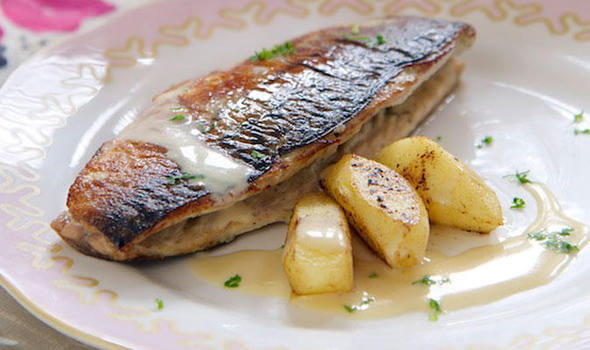Who’s Your True Friend, Fish or Banana?

That night, winking stars decorated the peaceful sky curtain as usual. Our protagonist Audrey was on an ordinary business trip in Manila. She felt hungry all of a sudden, and walked in a nearby local restaurant. She browsed the menu, and found a familiar-looking fish name there, then confidently ordered the dish ‘steamed saba’. Not long, a plate full with steamed bananas was served to her table. She stared at the bananas with a face expecting some magic to happen. Maybe they’re all filled with fish meat, she thought. Seconds later, she realised this story was not a fairy tale or even in fantasy genre. Banana is just banana. Fish! She turned to the waiter with a strong urge to complain.
This isn’t a ghost or love story either, but an awkward moment with cultural misunderstanding. The spoiler? Blame the fish word that sounds similar in two languages, but differs significantly in meaning. Ironically, such a word is named ‘false friend’ in linguistics. Friend? Hmm… Have you heard about the cliche of a British bloke talking about ‘football’ to an American dude… Yeah, that’s the friend. Got it?
When Parker Pen entered Mexican market, it advertised that the pen ‘won’t leak in your pocket and embarrass you’. The phrase was mistranslated as ‘no te embarazará chorreándose en tu bolsillo’, which means ‘won’t leak in your pocket and impregnate you’ in Spanish. Well, is impregnating someone so embarrassing? It’s wonder of life… I don’t believe it’s a true story. But the claimed translator should be embarrassed to mix up Spanish embarazada ([embaɾaˈθaða]), with its English friend embarrassed ([ɛmˈbarəst]).
False friends could be identical twins too. They just look exactly the same. In Japanese Kanji, 手紙 (tegami) means a letter, which is written by hands (手) on paper (紙). Its Chinese friend 手紙 (shou3 zhi3), unfortunately stands for toilet paper, which is paper (紙) used by hands (手) to clean… Shit, hope this won’t lead to another Sino-Japanese war.
Sometimes, the false friend drives you crazy in everyday life. If you’re buying chips in London, you get French fries, although you just want same potato crisps in New York… As George Bernard Shaw famously said, “England and America are two countries separated by a common language”. Even the same language may have different meanings contextually. For Mandarin, if you ask for 土豆 (ㄊㄨˇ ㄉㄡˋ) in Taipei, peanuts will be given as they’re small beans (豆) grown in soil (土); 土豆 (tu3 dou4) in Shanghai? You should expect large beans (豆) grown in soil (土) — potatoes… Yay, potato is such a good friend no matter you’re Chinese, Briton or American.
Back to Manila, where saba in Tagalog language is actually a common cooking banana. Steamed banana is popular among Filipinos. Coincidentally, our poor protagonist only heard about 鯖の塩焼き (Saba Shioyaki or Grilled Mackerel), a seafood entrée in Japanese cuisine. So she couldn’t possibly understand how did her mackerel become banana in that strange starry night.
Fin (Hey I’m French, not a part of your fish…).
